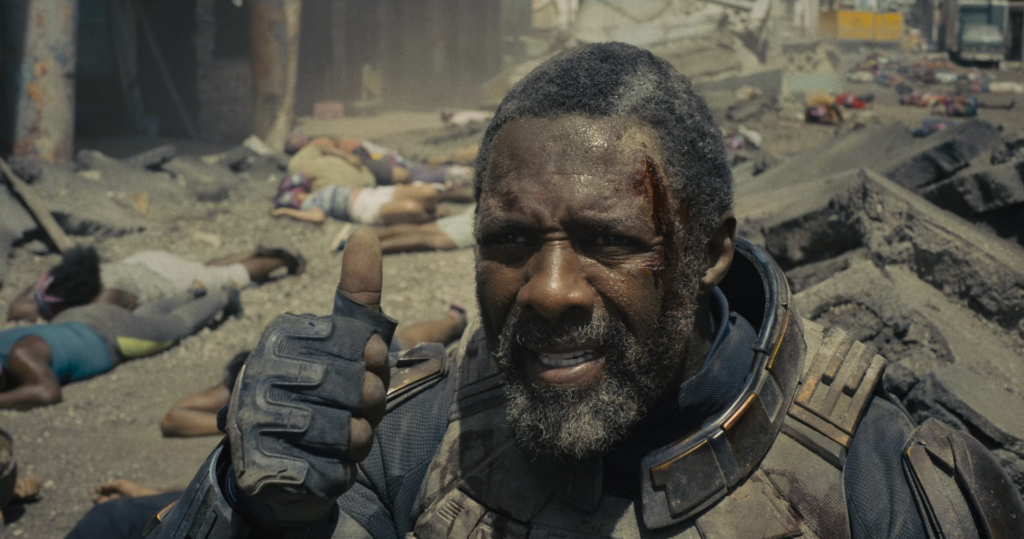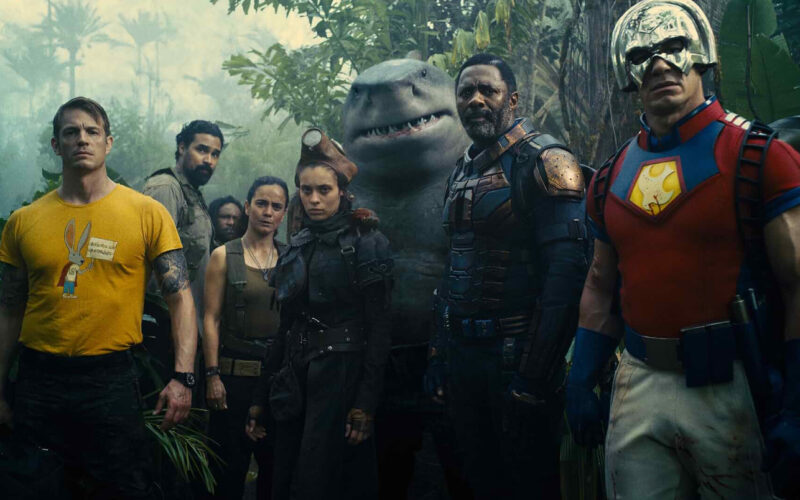In Defence of… The Suicide Squad (2021).
That’s right, The Suicide Squad (2021), not its heavily criticized predecessor, Suicide Squad (2016). Maybe David Ayer will one day get the opportunity to release a cut that will change my opinion of that film, but that’s not why I’m here. You may be wondering, why does The Suicide Squad even need defending? Didn’t every comic book nerd and their mother like the film? Well, while largely favourably received, I can’t help but notice that it has drawn the ire of some people. Some, for whatever reason, though many do seem to want to prove a point, whether it was the Twitterati taking a stance in the never-ending debate of comic book movies being “not cinema”, sparked by a hotly contested Martin Scorsese comment, or it was fans of the interconnected DC films overseen by Zack Snyder, colloquially called “The Snyderverse,” who felt defensive over what they regarded as a soft rebooting of that now entirely dead cinematic universe with its looming replacement being overseen by James Gunn, the director of The Suicide Squad. Honestly, one reason why I wanted to write this is that I’m just sick of seeing “#fireJamesGunn” trending on social media every other week. Another reason is that 2023 saw the release of several high profile disappointments in the superhero genre, like The Flash and The Marvels, which appears to mark the end of an era, so I want to look back at what I consider to be one of the highlights of that most recent era of superhero movies.
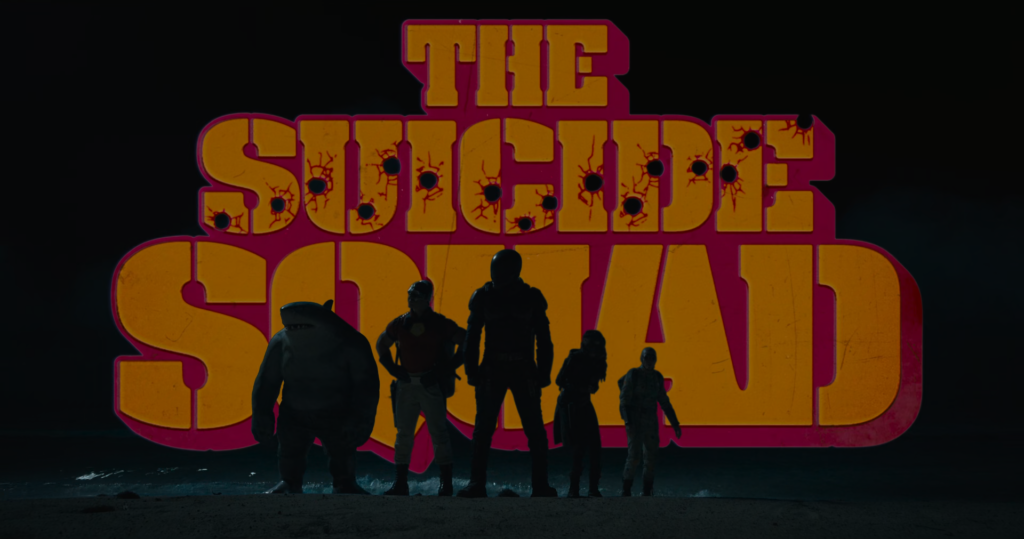
I think it’s worth reiterating how The Suicide Squad came about at a time that could be considered a low point for writer and director James Gunn. An alumni of Troma Entertainment, Gunn first came to my attention with his screenplay for the remake of Dawn of The Dead (2004) which was directed by his friend, Zack Snyder, and I enjoyed his directorial debut, the horror-comedy, Slither (2006), but what really made me a fan of his was his subversive superhero film, Super (2010). Super had the take that “if someone tried to be superhero in real life they’d be like Travis Bickle or Rupert Pupkin”, yielding a film that was stylized, hilarious, transgressive and surprisingly moving. After that, Gunn went fully mainstream with Guardians of the Galaxy (and a screenplay by Nicole Perlman) for Marvel, though while managing to maintain his offbeat authorial voice, thriving with a slate of characters that were obscure and unusual and following it up with a sequel, yielding two of my favourite Marvel movies. It was while gearing up to direct Guardians of the Galaxy vol. 3 that, in a moment of culture war absurdity, in response to the politically outspoken Roseanne Barr having the revival of her sitcom abruptly cancelled due to a series of tweets that were deemed offensive, an online mob went after politically outspoken James Gunn as retaliation. Old shock humour joke tweets by Gunn were dug up and used as the pretext to decry him. Disney caved to the online uproar and fired James Gunn in 2018. Gunn was in a position that seemed very close to being “canceled” with many articles at the time essentially declaring that his career was over, so it was perhaps unlikely that Warner Brothers, likely aspiring to chase the success of the Marvel formula, snatched up Gunn to direct a follow-up to the financially successful, but widely maligned Suicide Squad. It’s undoubtably appropriate that The Suicide Squad is a film about a group of D-list supervillains given long-shot second chances, and I don’t think it’s much of a stretch to infer that despite its blockbuster scope, there’s a personal aspect to the film. It really does feels like the film by someone who’s been given an unlikely second chance and wants to make the most of it. Of course Gunn would go on to make his return to Marvel, rehired onto Guardians of the Galaxy vol. 3 once it became apparent to Disney that he wasn’t radioactive, and then on to bigger things at Warner, along with the promise to direct a new Superman movie. With the current state of comic book movies and Warner Bros. Discovery, I’m uncertain what the future will hold for Gunn. Also, if I’m being transparent, I’d say that I was underwhelmed by Guardians of the Galaxy vol. 3 (2023), which I found enjoyable but couldn’t help but feel that it seemed tired and checked out compared to the first two, which may reflect on the general state of Marvel as much if not more than on Gunn and his cast. However, it did renew my appreciation for The Suicide Squad and the unique circumstances it emerged from. I get the impression that Gunn put his feelings into the film and gave his all on this one, working as if might be the last film he’d ever make, or at least the last one with a big budget behind it.
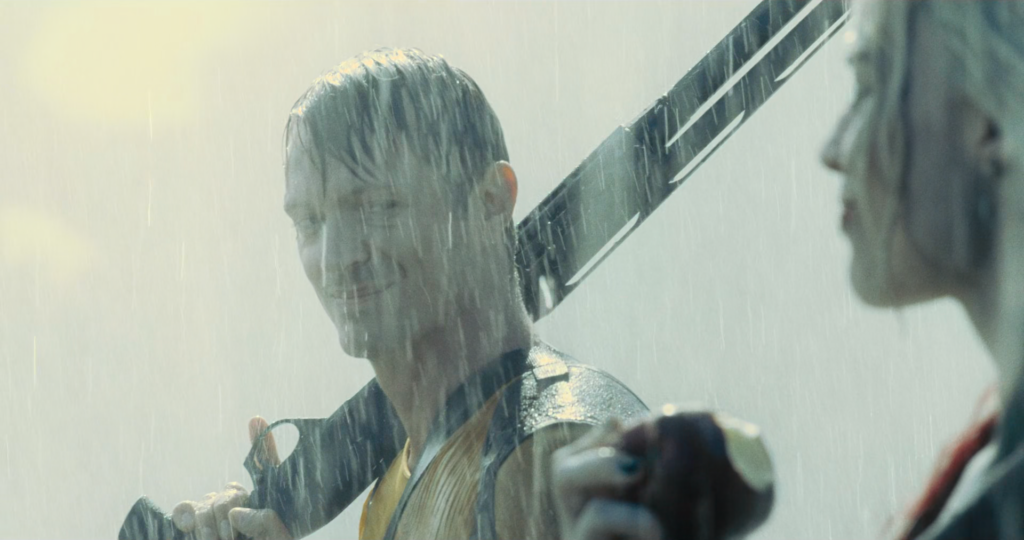
Gunn had been successful in getting his personality through in large-scale productions with the Guardians of the Galaxy films, but with The Suicide Squad his personality feels fully unleashed. A part of that is the allowances of the R-rating which allows for Gunn’s sense of humour and on-screen violence to be especially vivid. It’s not just that though. For instance the action in the film reflects Gunn’s feel for comic book imagery. It seems like something that should be granted with comic book films, but it can feel like a rarity at a time when film directors are often never even given the opportunity to direct the action scenes in their own comic book films, which may have been pre-visualized before they were even hired. Argentinian auteur, Lucrecia Martel, famously turned down the offer to direct Black Widow once she was essentially told that she would not be handling the action scenes in what was ostensibly an action movie, and I think how the film turned out probably speaks to a lack of direction in the action. The action in The Suicide Squad isn’t generic and is so much more exciting for it, like for instance, a close-quarters fight reflected in a metallic helmet. Much of it feels like harkening back to Gunn’s pre-Marvel films but blended with the polish and skill that he picked up during his Marvel films. For instance there’s the combination of animation with live action during one of the film’s best action sequences which recalls a similar use of animation combined with live action seen in Super, or even “Beezle,” Gunn’s contribution to Movie 43 (2013), which despite being included post-credits might be described as that film’s only good segment of that notorious “comedy”.
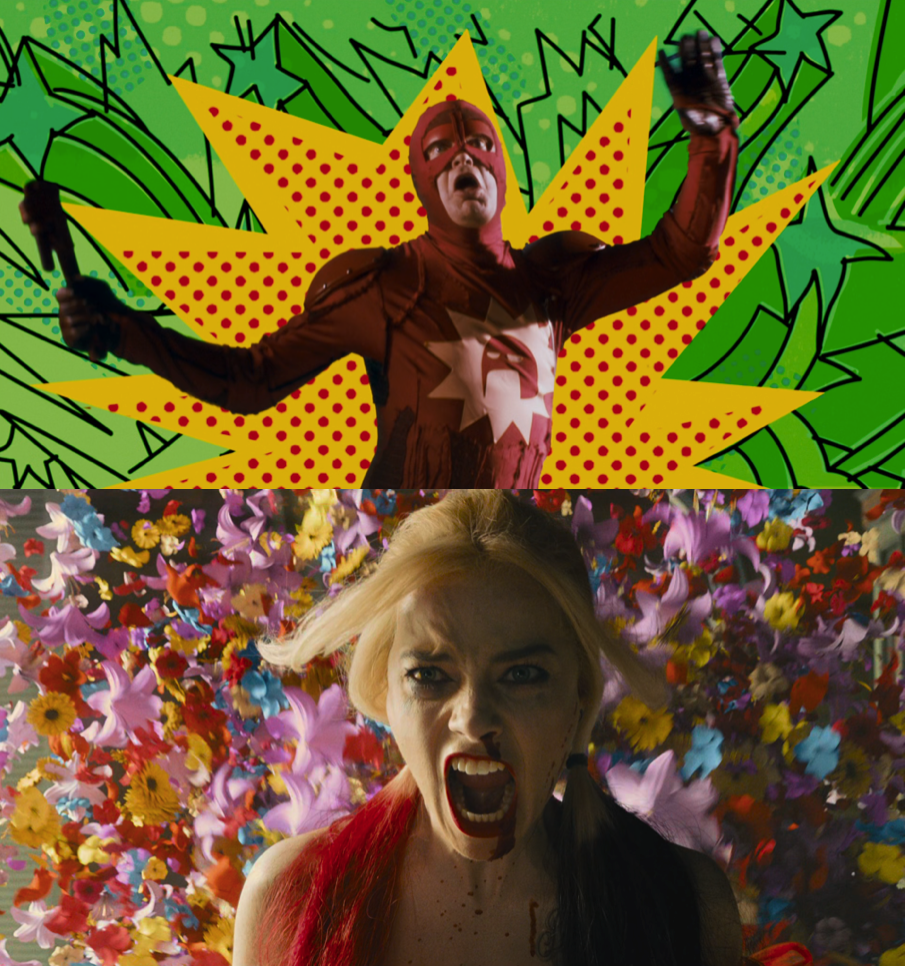
Of course, where The Suicide Squad shines brightest is in its characters. Gunn has always had a proclivity for outsiders and weirdos, so a bunch of reject supervillains is a perfect fit. There’s something wonderfully alchemical in seeing comic book characters that no one really cares if they live or die at the beginning of the film be fleshed out to the point where someone could finish the film with Polka-Dot Man or King Shark being their new favourite comic book character. At the forefront is Idris Elba as super-assassin Bloodsport (Robert RuBois) who becomes a reluctant leader and hero. While probably best known for starring in the television series Luther, Elba is a certified veteran of the comic book movie genre, having played roles in The Losers (2010), Ghost Rider: Spirit of Vengeance (2011), as well as Thor (2011) and several other Marvel movies as the Asgardian character, Heimdall, so it seems a little unlikely that he’d be given another crack at a comic book character and that it would work out as well as it does. I think often Hollywood has struggled to fully tap into Elba’s particular rugged charisma, but The Suicide Squad is the most successful Hollywood film to date to let what’s great about Elba to come through on screen. Bloodsport is more or less a second rate Deadshot, the character played by Will Smith in Suicide Squad, and it’s hard not to appreciate the irony of the knock-off character rendered as a more interesting and compelling character on-screen than the original. For example just contrast the saccharine scenes of Deadshot with his daughter with the ones of Bloodsport and his daughter yelling back and forth, and while they essentially serve the same purpose in giving their respective character a personal motivation, I think the scenes with Bloodsport realizing that he’s a disappointment of a father to be much more deeply felt. Bloodsport’s on-paper genericness is even underscored with a joke about his rival in the film, Peacemaker, played by John Cena (a role intended for Dave Bautista who declined to instead star in Zack Snyder’s Army of the Dead), having essentially the same backstory and characteristics. It’s in Gunn’s writing and Elba’s performance that the character is elevated to someone you care about. Someone who you want to see redeem himself, and when he finally does, it feels earned.
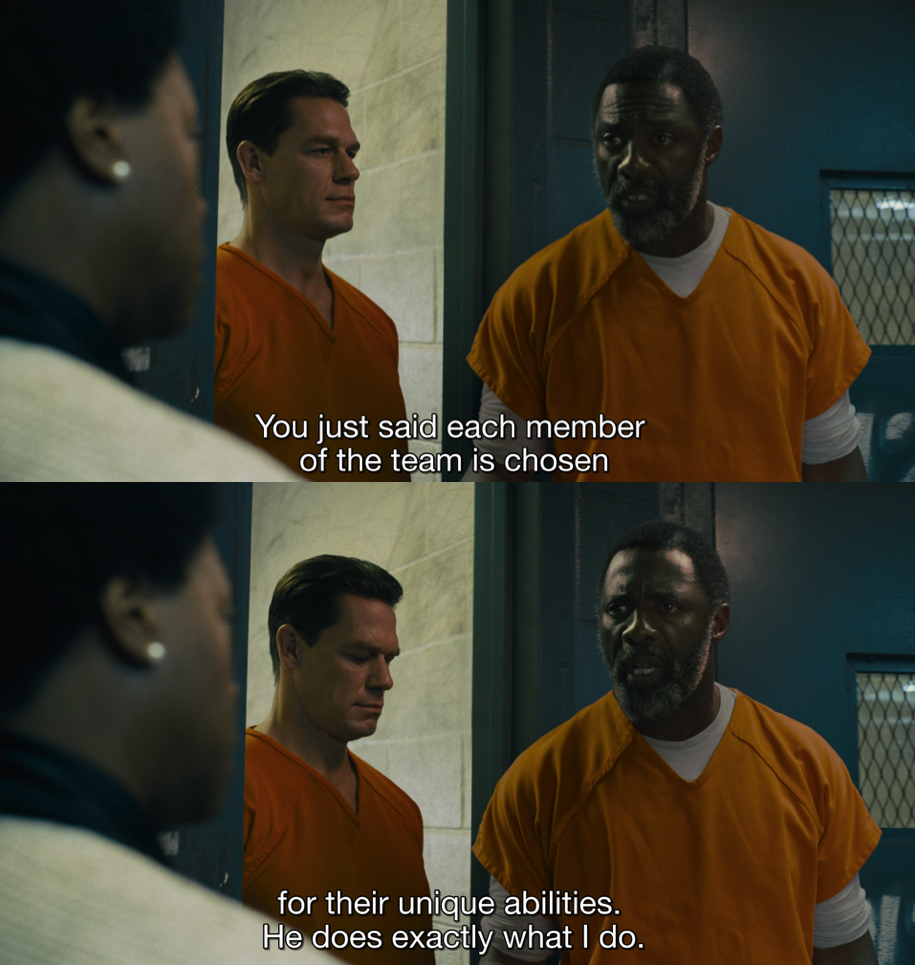
On the flip side Peacemaker is hypocrite to the core, and is the only irredeemable member of the core group. With Peacemaker, John Cena manages to get some of the biggest laughs in the film while also being a threatening presence when he needs to be. It’s easy to see why he’d get his own spin-off television series on HBO, though Gunn and Cena would rework the character to be much more sympathetic and redeemable in the first season of Peacemaker. There’s also Daniela Melchior as Ratcatcher 2 (Cleo Cazo) who has a device that can control rats, and who ends up being the heart of the film, trying to see the good in everyone. One of the most compelling threads in the film is seeing Ratcatcher 2 and Bloodsport make good on their mutual promise to get the other out alive. The original Ratcatcher, her father, is played in a cameo by Gunn’s fellow MCU director, Taika Waititi, who more or less states the major theme of the film by expounding that “Rats are the lowliest and most despised of all creatures, my love. If they have purpose, so do we all.” Of course there’s Sylvester Stallone (who had previously had a cameo role in Guardians of The Galaxy vol. 2, but whose comic book movie credentials go all the way back to 1995’s Judge Dredd) as the voice of King Shark (Nanaue), the anthropomorphic shark who has limited intelligence and a terrifying appetite, but also a deep loneliness and a pitiable quality. Another comic book movie veteran is David Dastmalchian, who had supporting roles in The Dark Knight (2008) and the Ant-Man films (as well as a small role in The Belko Experiment, which was scripted by Gunn), who plays Polka-Dot Man (Abner Krill), the self-loathing supervillain with mother issues who shoots polka-dots. I’d say that Polka-Dot Man has the most satisfying arc out of any of the main group… I mean just look at his face when he says, “I’m a superhero!”
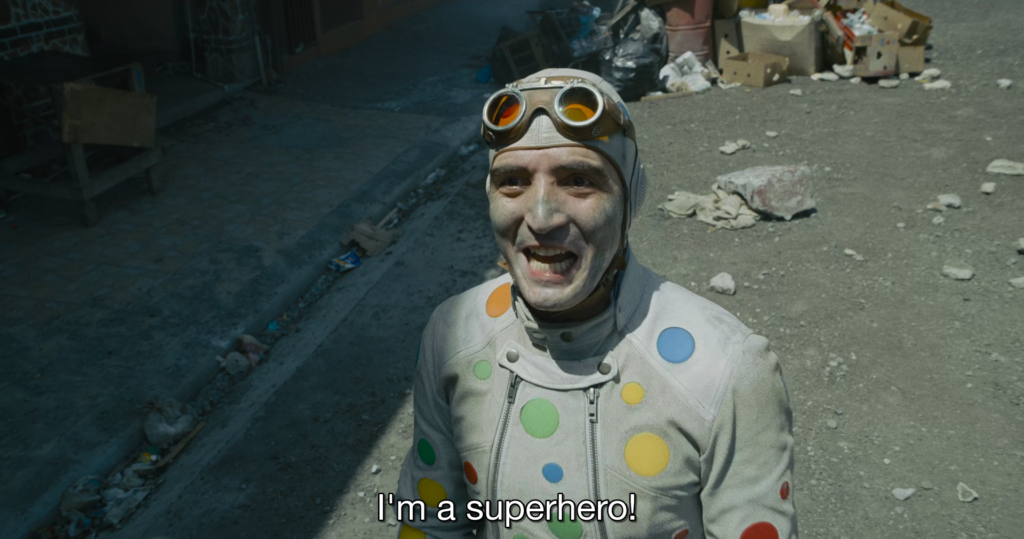
Contrary to the rancour of the “#RestoreTheSnyderverse” crowd, The Suicide Squad makes sure not to throw out the baby with the bathwater of its predecessor, and so a number of the actors from Suicide Squad are given a chance to play their characters once again. There’s Viola Davis who brings a gravitas to the role of Amanda Waller, the U.S. government official who assembles the suicide squad and is a sort of Mirror Universe version of M from the James Bond films. The film’s embodiment of American extraterritoriality, Waller’s ruthlessness and amorality make her as much the villain of the film as anyone. Joel Kinnaman reprises his role of Col. Rick Flag, who oversees the suicide squad on the ground, and ultimately does prove to have an endearing integrity to him. If I’m being totally sincere, Kinnaman as Flag had hardly left any impression on me at all in Suicide Squad, so it was a pleasant surprise to see how much of a standout and how likeable he is in The Suicide Squad. It’s proof that Kinnaman can have a wonderful screen presence if given the opportunity. Most notable of the returning cast is Margot Robbie as Harley Quinn, a character first introduced in Batman: The Animated Series as a henchwoman and moll for The Joker, but who would go on to become one of the most popular and beloved DC characters. Robbie’s interpretation of Harley Quinn was one of the few things I genuinely liked in Suicide Squad, so naturally I was excited to see her play the character again, though I wasn’t without concerns. The foremost was that the popularity of the character perhaps makes her the only one you could count on living through the film before watching it, which could diminish suspense and could have easily led to an inflated significance in a team-centric story, not unlike the popularity of the character of Wolverine driving the significance his role in the X-Men film franchise. I’d say that that was already the case with Robbie’s other appearance as Harley Quinn in Birds of Prey (2020), which was retitled Birds of Prey and the Fantabulous Emancipation of One Harley Quinn, which is probably a good tip-off of how the character is pushed further into the spotlight and overwhelms what probably should have been a more balanced ensemble movie. To my relief, Gunn skillfully strikes the right balance of making Harley Quinn feel like she’s one piece, albeit a shining one, of something bigger, while still showcasing Robbie’s great portrayal of the character, and having a dedicated subplot that gives her a proper share of peril and growth. Another returning cast member is Jai Courtney as Captain Boomerang, who was an unexpected highlight of the previous film for me, and who’s in and out of the film pretty quickly, but not without leaving his mark by getting a wonderful moment in a sequence that is essentially a rehash of the best part of Deadpool 2 (2018), which itself was basically just a variation of a joke from MacGrubber (2010). Here at least taking the time to build up a team only to have almost everyone rapidly killed off serves the purpose of emphasizing just how the circumstances of the story put all of these characters in a situation where they’re expendable. I could keep going with the sprawling characters and cast (which includes a number of Gunn regulars), but hopefully it’ll suffice to just say that everyone is great! Hell, even the giant starfish monster Starro the Conqueror is given more depth with a single line than the average comic book movie supervillain.
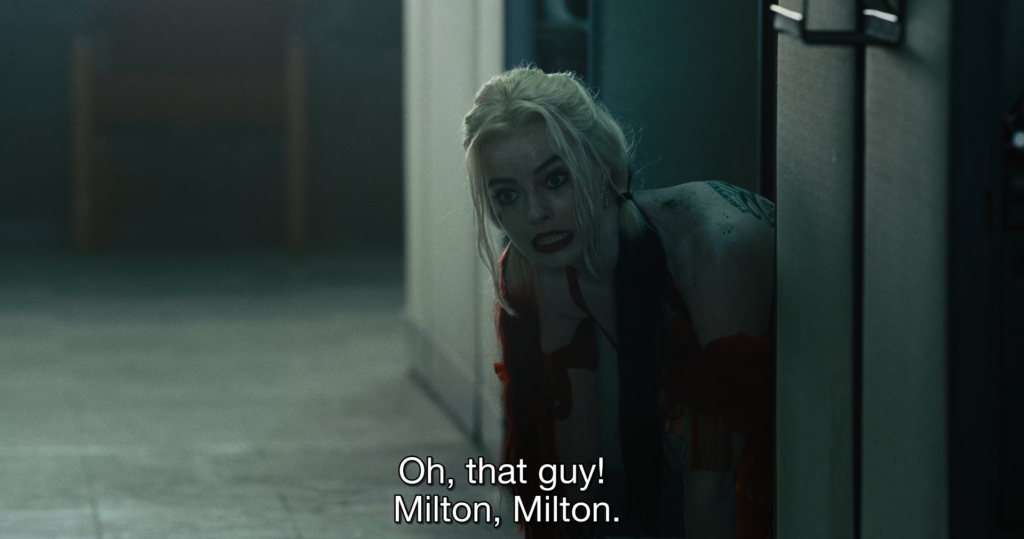
Also I’d probably be remiss if I didn’t mention how in many ways The Suicide Squad feels like a throwback to the pop cinema of the 1980s. Not in an obvious baiting way, but in the ways that harken back to those Hollywood films that exuberantly blended action, wit, outlandish spectacle and heart to create endlessly re-watchable favourites like Ghostbusters (1984), The Goonies (1985) or Predator (1987). I’m sure a reason for that is because the film draws heavily on John Ostrander’s 1980s comic book revitalization of The Suicide Squad which fits neatly into that pop culture landscape. That’s why I felt that Film ’89 would be an ideal place to discuss The Suicide Squad, where if you’re reading this you’re probably in the right crowd to enjoy and appreciate the film.
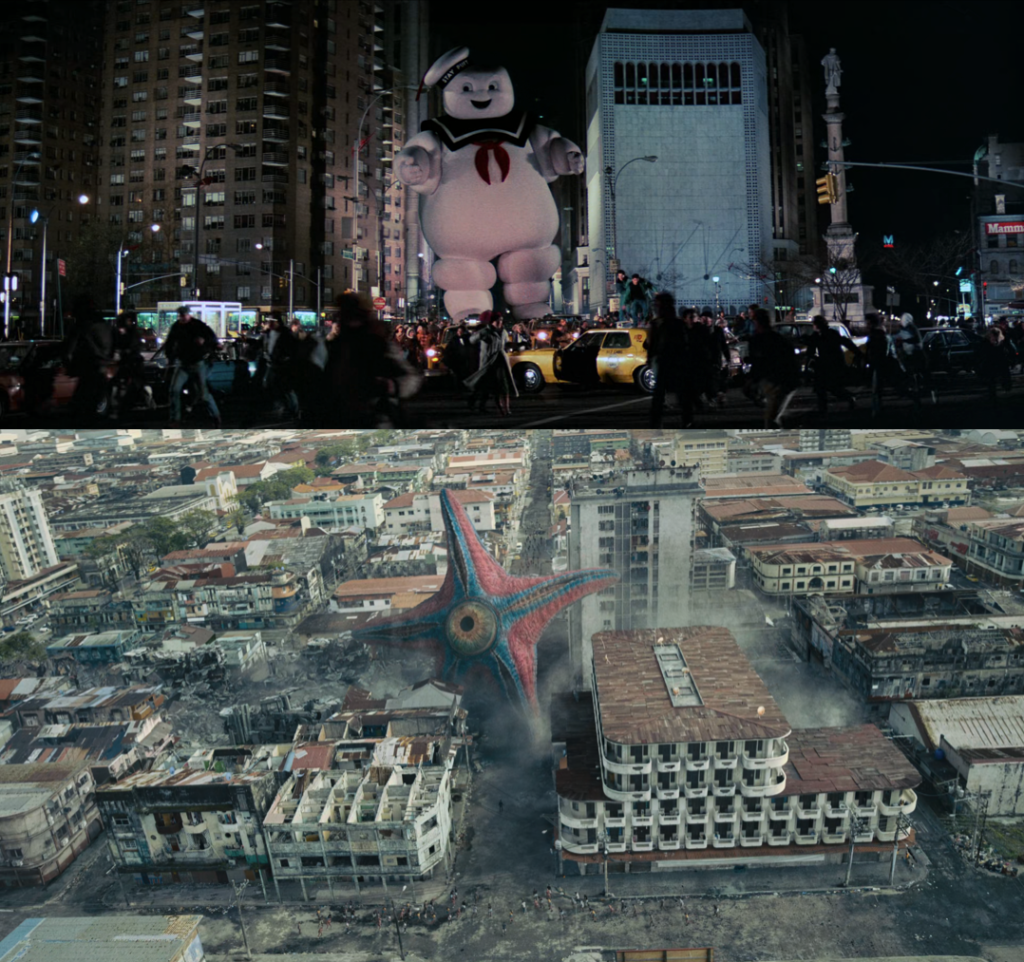
To end on a more personal thought, I’m someone who tries to find the value in imperfect things and seeing that philosophy reflected in The Suicide Squad is a reason why it resonates strongly with me. In a world that seems to have ever higher standards of perfection in people and be ever less and less forgiving, I think second chances are incredibly important. In the spirit of second chances if, for whatever reason, you didn’t like The Suicide Squad the first time around, maybe you should give it another chance.
